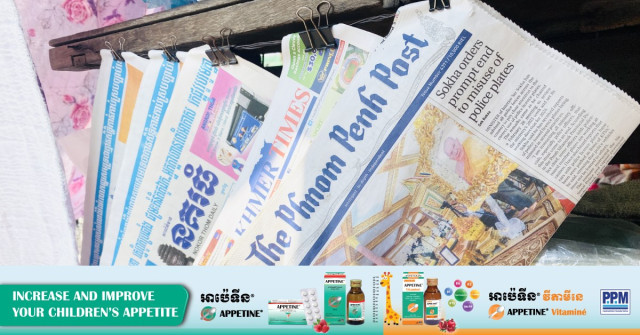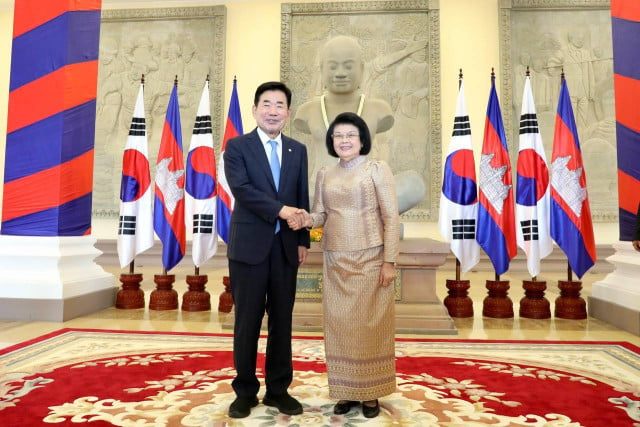The End of the “Paper” Press: An Unimportant Casualty?

- By Cambodianess
- March 3, 2024 10:10 AM
Thirty-two years after being launched by Michael Hayes and the late Kathleen O’Keefe, the Phnom Penh Post will stop being published on paper and will only continue through its “online presence.” According to a press release from the editor, it is the significant decrease in advertising revenues generated by the newspaper that has led to this decision, being unable to bear the losses that kept on growing overtime without any hope of a shift in the situation.
I have in essence read on social media after this announcement, the Phnom Penh Post, since having been acquired in 2018 by a Malaysian businessman, did not play the same role in terms of editorial content as it used to be in the 1990s and in the early 2000s in the information landscape when it was a bimonthly and each of its editions, whose front-page stories often featured far-reaching scoops, were eagerly awaited by political decisionmakers and international observers.
Really, for them, the Phnom Penh Post no longer being published would be the logical result of a form of editorial “difference” that would have led to a loss of appeal for the readers and, as a result, for the advertisers and, therefore, should not be made a fuss about since this is not a loss of the plurality and diversity of information. So be it.
“This loss is logical since today, there is only room for online information sites” was also pointed out, noting that this was a global trend.
These two viewpoints are far from irrelevant but rather overlook what is at stake with the disappearance of printed newspapers.
What importance does the disappearance of the printed version have since the publication will continue to appear online, some people will argue.
I would reply that an online newspaper, since it is nonmaterial, cannot reflect the scope of an editorial approach. When a reader holds a printed newspaper in his hands, he physically grasps that approach by seeing the physical space given to the various types of content such as editorials, general information, news reports, analysis, and to the sections on politics, social issues, economy, culture, sports, international.
This whole physical layout is the result of the collaborative work of a professional editorial team, and buying this newspaper constitutes a deliberate choice on the part of the reader. He likes this or that publication because he appreciates its approach and trusts its news team more than another.
Online, everything nearly seems on the same level, without hierarchy. And in the end, the reader sifts through what he is interested in without any real commitment, save for some exceptions, to a particular editorial approach.
Let’s add to this that the online reading standards call for formats that are short and catchy to trigger clicks, and we end up with an impoverishment of the editorial content.
The difficulties that the written press faces today are a result of the monopolization of nearly the whole world’s advertising market by the U.S. online giants: Alphabet (Google), Meta (Facebook and others) and Amazon.
In an article published about a year ago, La Revue européenne des médias et du numérique—the European magazine on the media and digital technology—was mentioning that, according to the GroupM (WPP), the growth of the online publicity world market reached 46 percent between 2019 and 2021, amounting to nearly $500 billion, which was 64.4 percent of the world’s advertising expenditures, compared to 52.1 percent in 2019. According to the magazine, the daily press’ advertising market in fact lost 25 percent of its advertising revenues worldwide during those two years, while magazines lost even more, that is, 27 percent. Unsurprisingly, these contrasting evolutions of the world’s advertising market benefit the digital industry players that have at their disposal the major platforms using online advertising: Alphabet (Google), Meta (Facebook) and now Amazon. Together, these three players get 50 percent of the worldwide advertising market outside China where they are basically barred, the magazine article read.
The plurality of information was previously funded through advertising revenues that today stuff the pockets of the online giants that only view information—which they don’t produce—as “content” among others to the extent that the spreading of “fake news” does not bother them.
However, it has been observed here and there across the world that “paper” is coming back in specialized fields in the form of news magazines publishing studies and analysis. The last jolts before the end? No one should feel happy about it.















